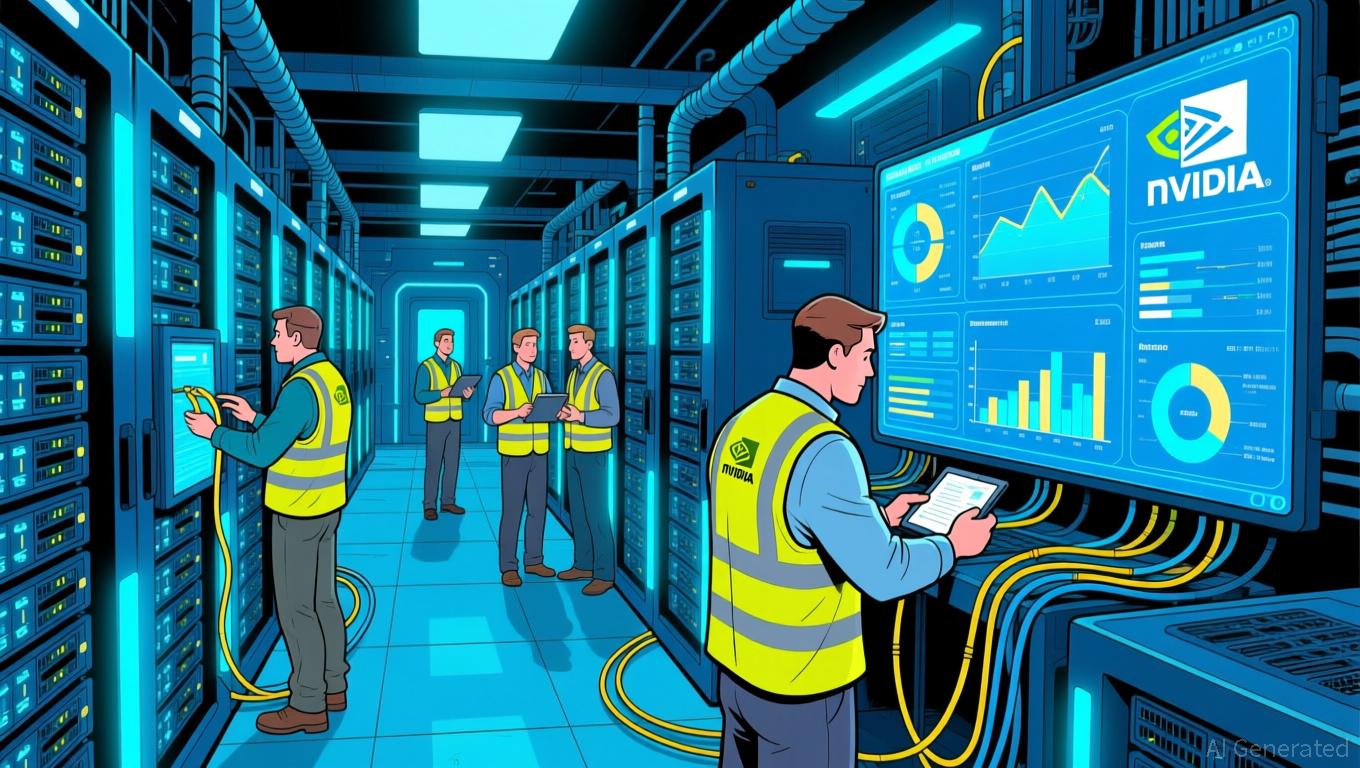Amazon’s $50 Billion Investment in AI: Strengthening America’s Position in the Worldwide Technology Competition
- Amazon invests $50B to boost AWS AI/supercomputing for U.S. government agencies, adding 1.3GW capacity by 2026. - Tech giants like Microsoft and Meta also ramp up AI spending, with global capex projected to hit $611B by 2026. - AWS dominates government cloud computing, serving 11,000+ agencies with secure, classified workloads since 2011. - Competitors like AMD and Oracle join AI expansion, while economic analysts warn of overbuilding risks and GDP concentration. - The GAIN AI Act supports domestic AI ch
Amazon.com Inc. (NASDAQ:AMZN) has revealed plans to invest $50 billion to enhance artificial intelligence (AI) and supercomputing resources for U.S. government agencies via its
This investment reflects a broader surge in AI-driven capital spending among major technology companies. Corporations such as
This development further cements AWS’s leadership in the government cloud sector, a space it has dominated since the launch of AWS GovCloud (US-West) in 2011
Rivals and collaborators are also ramping up their AI commitments. AMD (NASDAQ:AMD) recently achieved $45 billion in design wins across sectors like aerospace, defense, and data centers, while Microsoft and Sony (TOKYO:6758) have increased chip production for the holiday gaming market
Economic experts warn that heavy AI spending by large cloud providers could obscure underlying economic challenges. Projections indicate U.S. AI-related capital expenditures will make up 1.2% of GDP in 2025, and growth rates may exaggerate economic strength if investments remain concentrated among a few major players
This initiative also intersects with international policy considerations. The GAIN AI Act, designed to prioritize domestic AI chip sales over exports to China, has received backing from Amazon and Microsoft but faces resistance from lawmakers concerned about trade relations with Beijing
Disclaimer: The content of this article solely reflects the author's opinion and does not represent the platform in any capacity. This article is not intended to serve as a reference for making investment decisions.
You may also like
Meta Invests Billions in Google TPUs, Putting NVIDIA's Dominance at Risk
- Alphabet plans to sell custom TPUs to Meta , challenging NVIDIA's AI chip dominance and potentially disrupting the market. - Meta's shift to Google TPUs aims to diversify suppliers, targeting $1B+ deals and leveraging Gemini 3's TPU-optimized performance. - Alphabet shares rose 2.7% while NVIDIA fell 1.8%, reflecting market uncertainty as Google targets 10% of NVIDIA's AI revenue. - The move accelerates industry vertical integration, with Amazon and Microsoft also pursuing in-house AI hardware to compete

Solana News Update: Solana Exceeds 10 Billion USDC as Circle Drives Blockchain Scalability Expansion
- Circle mints 10B USDC on Solana since October 11, highlighting blockchain's scalability and low-cost advantages for stablecoin adoption. - SNDL Inc. renews C$100M share buyback program (10% of float), driving 1.86% post-announcement stock surge in after-hours trading. - TSA projects record 3M+ Thanksgiving travelers on Nov 30, 2025, with 17.8M+ total holiday passengers attributed to "Golden Age of Travel" policies. - Bitcoin Munari launches $0.10 presale (up to $3.00) with 53% supply allocation, targetin

Ethereum News Update: Major Institutions Fund Ethereum's Legal Battle While Individual Investors Pull Back
- Ethereum stabilized near $2,800–$2,850 after November's sell-off, with BitMine Immersion Technology accumulating 3.63M ETH (3% of supply) to become the dominant public treasury. - BitMine's $59M market injection and 70,000 ETH weekly purchases highlight its 2/3 control of public treasuries, while 24-hour trading volume surged 35% to $24B. - Crypto market cap briefly exceeded $3T amid ETF inflows ($238M for Bitcoin , $55.7M for Ethereum), but JPMorgan noted $4B November retail outflows from crypto ETFs. -
Trump’s Genesis Initiative: The Potential of AI and the Cost of Authority
- Trump's executive order launches the "Genesis Mission," a federal AI initiative to boost scientific innovation via national labs and private-sector partnerships. - The program aims to accelerate breakthroughs in medicine and energy by leveraging supercomputing resources from DOE labs and tech giants like Nvidia and AMD . - Critics highlight energy consumption risks from data centers, while market skepticism emerges as AI stocks like Nvidia face valuation pressures amid surging demand. - The mission under
